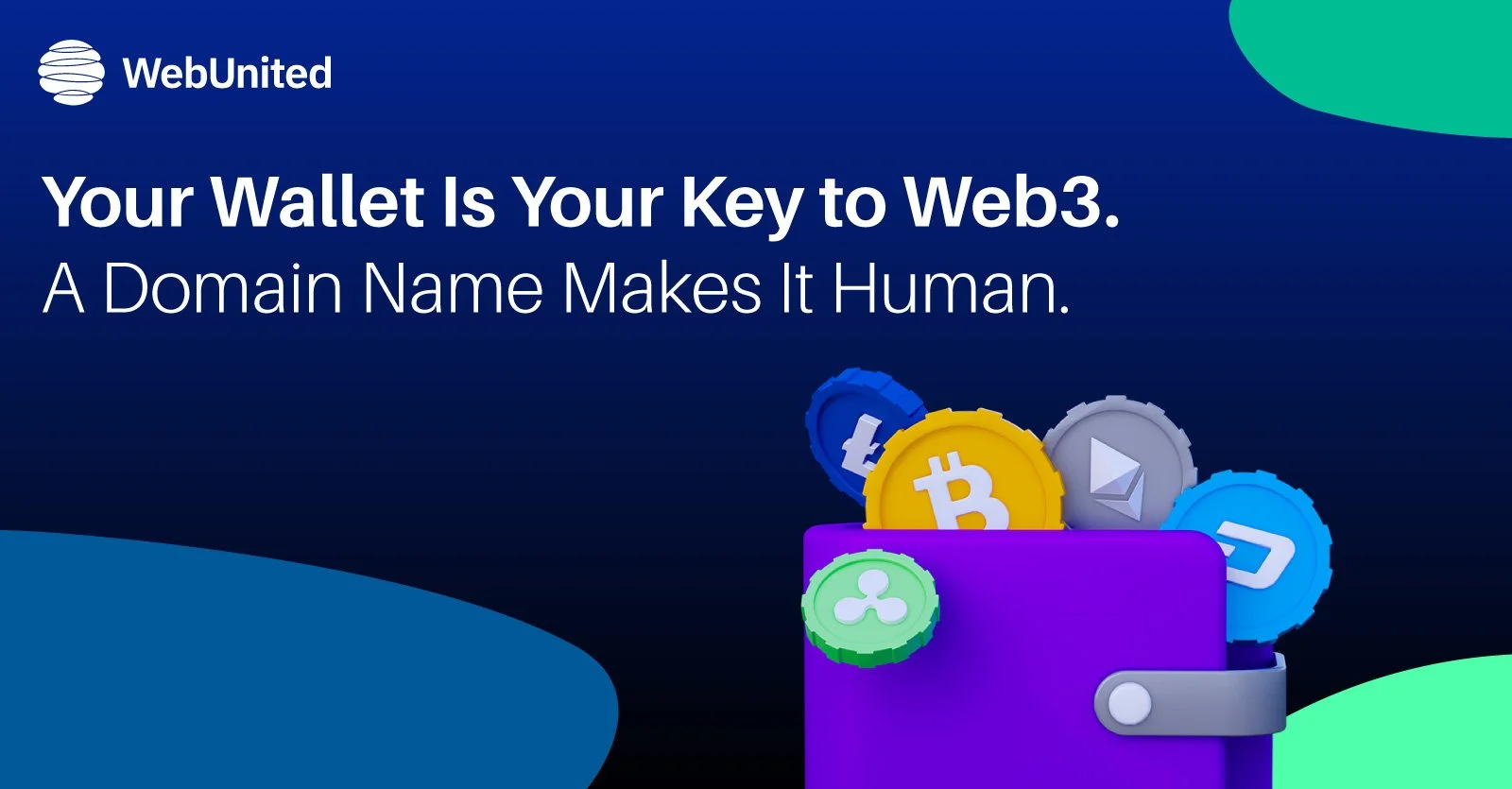Your Wallet Is Your Key to Web3. A Domain Name Makes It Human.
If the browser is your window to the traditional internet, then a Web3 wallet is your doorway to the decentralized web. It’s how users store digital assets, manage identity, and interact with blockchain-based apps (dApps). And just like you wouldn’t want to share a long, random IP address, you wouldn’t want to send crypto to one either. That’s where domain names come in.
First, What Is a Web3 Wallet?
Whether physical or digital, all wallets serve the same basic purpose: they prove your authority. In the world of Web3, your wallet proves you own your assets, your identity, and your digital permissions. It does this by storing cryptographic keys.
Your public key (wallet address) is like your bank account number—it’s how people send you crypto or NFTs.
Your private key is like the PIN to your bank account—you never share it. This key gives you access to your digital assets and is generated from a backup phrase, often called a seed phrase or secret recovery phrase (SRP).
This phrase is generated the moment someone creates a wallet. If they lose it, they lose access to everything in that wallet—so it’s essential to store it securely.
What Can a Crypto Wallet Do?
More than just holding coins, a wallet is a toolkit for the decentralized web. With a Web3 wallet, users can:
Buy and sell crypto
Store and manage NFTs
Interact with dApps
Approve and confirm blockchain transactions
Create and manage a decentralized identity
And here’s what matters to domain registrars: wallets need names.
Right now, a public wallet address looks like this: 0x4e09d3a29vl70alk22455hlk998xni20.
It's not exactly user-friendly. But when that wallet is connected to a Web3 domain, like alex.com or mycompany.us, it becomes far more approachable and brandable.
Why This Matters to You
As a registrar, you already help customers buy domains for their websites and email. But the future is broader. With the rise of crypto wallets, every user will eventually need a digital identity in Web3—and the most intuitive way to express identity is with a domain name.
By offering Web2+Web3 domain mirroring (where a Web2 domain adds web3 utility and allows the domain to function in Web3), you’re not just staying current—you’re giving your customers the tools they need to transact, communicate, and build in the next version of the internet.
MetaMask Makes It Easy (and WebUnited Makes It Smarter)
If you're wondering which wallet your customers are most likely to start with, the answer is simple: MetaMask.
With over 30 million monthly active users worldwide, MetaMask is one of the most trusted and widely-used crypto wallets today. Its browser extension and mobile app are both intuitive beginner-friendly—ideal for users who are new to Web3.
Even better: MetaMask now supports domain resolution for WebUnited and Freename domains via a feature called a MetaMask Snaps. Once you add the wallet to your desktop browser, Just search for the “Freename Snap” and add it.
This plugin makes it super easy for users to see and use their Web3 domain directly inside MetaMask, just like an address book. It eliminates the need for complex wallet addresses and replaces them with a simple, memorable domain name—like yourname.io.
For registrars, this means you’re not just selling a domain. You’re helping your customers unlock real utility in Web3: readable wallet addresses, integrated identity, and smoother crypto interactions—all through a domain name they control.
To learn how you can start selling Web3 domain mirroring for any DNS domain, contact us!

